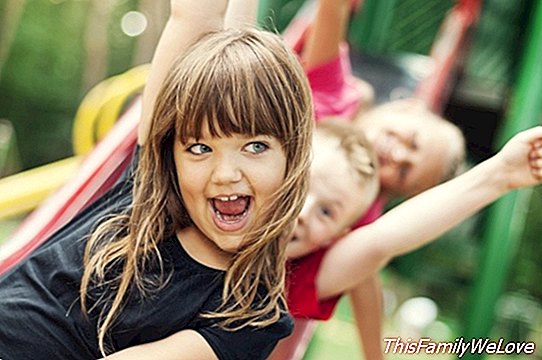Excitement in children, how to control strong emotions in children

Behavior in children is a very important issue to be taken into account by parents. The attitude of the children means their letter of introduction before other people, to better behavior, calmer situations. While there are certain ways of being that can not be denied to the youngest, we must remember their age, we must not forget the importance of guide to the minors.
An example is the excitement with which many children face some situations. Be it too great a joy before the reception of good news or a fear above normal, these attitudes contain a certain level of histrionics that in turn translate into a search for attention. At the same time, it can also signal a poor control of emotions in minors.
Reasons for excitement
The first step to be able to work on this behavior is to understand why the child acts in this way, why he goes from the simple show of emotions to histrionics, to the excess of feelings. From the Understood Foundation The following keys are indicated to recognize these behaviors:
- Eflusiveness, monopoly of conversations, talking out of turn and being too histrionic in the show of emotions before something that is not so exciting.
- He's unrealistically optimistic. The son shows too great expectations when faced with an event as simple as a visit to the park or going to see a movie at the cinema. It can also be translated into an exaggeration of an event that was not like that with lies like the narration of skills that it lacks.
- Too emotional. Children react to certain events, giving an account of how well or badly they have gone through, exaggerating the results in order to give an account of their emotions and their experiences so that the rest of them know them.
Why do they show these behaviors?
From the Understood Foundation there are also some explanations to why children manifest these behaviors:
- Attention Deficit Disorder. The stimuli of a child with ADHD can alter his reaction. Parents must learn to set limits in this regard and be prepared for exciting situations.
- Difficulties of executive functioning. The expenditure of energy and the high tone of voice are appropriate for the playground, but when these children enter the house or the classroom, they must act differently. You have to teach how to behave in each moment and explain what is the correct attitude for each situation.
- Difficulties of sensory processing. Children with sensory processing difficulties do not know their own strength. As a result, well-intentioned, rude games can get out of control, and when they get too much stimulation from the environment, it can be difficult for these little ones to concentrate on what other people may feel.
Damián Montero




